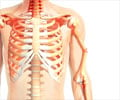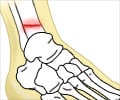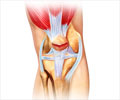
‘Certain sleep medications such as benzodiazepines and ‘Z-drugs’ may increase the risk of hip fractures in the elderly.’
Tweet it Now
"Our study shows that both appear to significantly increase the risk of hip fracture when newly prescribed by doctors."The study of people aged over 65 found that new users of these hypnotic medicines experienced nearly two and a half times the fracture rate, when compared with older people not taking hypnotics. An estimated 53% increase in fracture risk was identified in medium-term users (15 to 30 days), as well as a 20% increased risk of hip fracture in long-term users (greater than 30 days).
Dr Carter added: "Careful consideration of the immediate increased risk of hip fracture should inform the clinical decision-making process. Clinically effective measures like strength training to improve frailty, removal of hazards at home, visual correction and a medication review are also needed to mitigate the risk of hip fractures, particularly in the first few days of use."
The research supports previous studies linking use of hypnotics by older people with an increased risk of accidents, dependence, cognitive decline and hip fracture. The drugs are also thought to cause drowsiness, delayed reaction times and impaired balance.
'Benzodiazepines, Z-drugs and the risk of hip fracture: A Systematic Review and Meta-Analysis' is published today in PLOS ONE.
Advertisement
Source-Eurekalert












